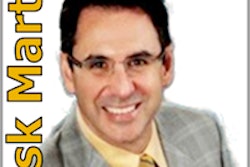Several major dental organizations have joined a coalition opposing a proposed tax on expensive U.S. health insurance plans. The tax is part of the healthcare overhaul bill that passed last month in the U.S. Senate. The U.S. House of Representatives' version of healthcare reform does not include the tax.
The proposed tax on "Cadillac" health insurance plans would kick in when the total cost of premiums for the combined health insurance benefits -- including dental, vision, and mental -- exceeds $8,500 for an individual or $23,000 for a family.
Insurance companies would have to pay the 40% tax on the amount over these thresholds.
But insurers would most likely pass the cost on to their customers, according to Chad Olson, manager of government relations for Delta Dental. Self-employed people would have to pay it if they claimed any income tax deduction for healthcare insurance.
Proponents argue that the tax will help reduce the cost of healthcare by discouraging people to get unnecessary treatments. But dental groups worry that to avoid the increased cost on their total package of benefits, some people might drop their dental benefits.
The ADA, Academy of General Dentistry, American College of Prosthodontists, American Academy of Pediatric Dentistry, American Association of Oral and Maxillofacial Surgeons, American Association of Orthodontists, and the Hispanic Dental Association have joined a coalition of labor unions and insurance companies in asking Congress to modify the tax.
"[It] is the opposite of healthcare reform," said ADA Pres. Ron Tankersley, D.D.S. "It would compel many employers to drop critical dental and other coverage to avoid the tax. It dismantles exactly the type of preventive, primary care that everyone agrees this country needs more of."
In a letter to Congress, the coalition argues that many "basic" insurance packages would be taxed if the provision becomes law. "As a result, the excise tax could lead many employers to reduce benefits … by eliminating limited service supplemental benefits and FSA [flexible spending accounts] that fund much-needed and prevention-oriented dental and vision care in order to avoid the tax. Cuts in these crucial benefits will lead to a decline in access to necessary care.
"Patients rely on the preventive services covered by the dental, vision and limited service supplemental plans to prevent infections, slow the progress of chronic disease and facilitate early treatment of preventable conditions."
The coalition suggested three alternatives for modifying the tax:
- Excluding FSAs, as well as managed and limited service dental, vision and stand-alone plans from the calculation of health plan costs.
- Raising the threshold AND indexing the threshold to medical inflation.
- Replacing the single and family coverage thresholds with a per-covered-person threshold, which it called "a fairer approach to plan cost allocation" because the number of dependents in a plan's family coverage varies.


















